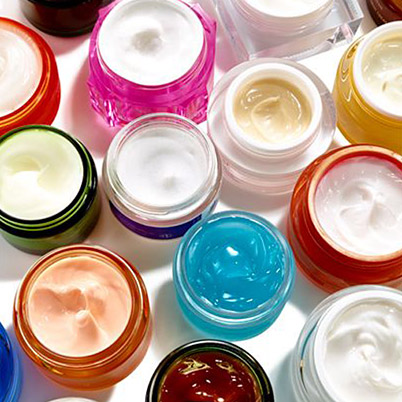This healing antioxidant has been touted as a miracle ingredient in the skin-care world. Agents like pollution and UV light trigger the formation of free radicals, which attack other cells, damaging cell structure and collagen in the process. The end result? Premature skin aging and dryness in the form of fine lines, wrinkles and age spots. Moisturizing vitamin E, however, strengthens your skin's barrier and neutralizes free radicals.
Similar to omega-3s, vitamin E is a potent anti-inflammatory and a great ally during the cold winter months. The antioxidant also suppresses arachidonic acid, a polyunsaturated fat that worsens inflammatory skin conditions like eczema and psoriasis. If you're taking a supplement, make sure your intake doesn't exceed 1,000 milligrams daily.
Find it in: olives, olive oil, almonds, sweet potatoes, mangos, avocados, apples, asparagus, turnip greens, spinach, sunflower seeds
Similar to omega-3s, vitamin E is a potent anti-inflammatory and a great ally during the cold winter months. The antioxidant also suppresses arachidonic acid, a polyunsaturated fat that worsens inflammatory skin conditions like eczema and psoriasis. If you're taking a supplement, make sure your intake doesn't exceed 1,000 milligrams daily.
Find it in: olives, olive oil, almonds, sweet potatoes, mangos, avocados, apples, asparagus, turnip greens, spinach, sunflower seeds
You might have taken this B vitamin after you chopped your hair into that regrettable pixie cut, as biotin is known for promoting stronger hair. But biotin can also be extremely beneficial for your skin thanks to its role in regulating fatty acid metabolism. Fatty acids help regulate new skin cells from external damage and dehydration. If your body lacks biotin, your skin cells will show that their defenses are down. (Think: cracks on the sides of the mouth, overall itchiness and scaly skin.) Having a true biotin deficiency is uncommon, but working extra biotin into your diet can help moisturize parched skin when the weather outside is frightful. In supplement form, 30 to 100 micrograms daily is sufficient.
Find it in: egg yolks, liver, avocados, oats, Swiss chard, romaine lettuce, almonds, walnuts, chicken, beans, legumes, carrots
Find it in: egg yolks, liver, avocados, oats, Swiss chard, romaine lettuce, almonds, walnuts, chicken, beans, legumes, carrots
You may gravitate toward vitamin C during wintertime in attempt to ward off sniffles, but research says that you should be stocking up on foods rich in this antioxidant for healthy, radiant skin. Like vitamin E, vitamin C is an antioxidant that protects cells by neutralizing free radicals and reduces inflammation that is triggered by cold weather. Vitamin C also increases collagen production, the protein that gives skin its firmness and elasticity. Young skin is naturally full of vitamin C, but you slowly lose the nutrient over time. When collagen breaks down and vitamin C isn't there to replenish it, wrinkles begin to form. Upping your intake in vitamin C (the recommended oral dosage is 75 to 120 milligrams daily) can encourage collagen production and strengthen your skin's natural barrier so you retain more moisture during winter months.
Find it in: oranges, grapefruits, lemons, limes, cauliflower, spinach, broccoli, bell peppers, kiwis, red cabbage, snow peas, strawberries, tomatoes, kale
Find it in: oranges, grapefruits, lemons, limes, cauliflower, spinach, broccoli, bell peppers, kiwis, red cabbage, snow peas, strawberries, tomatoes, kale





